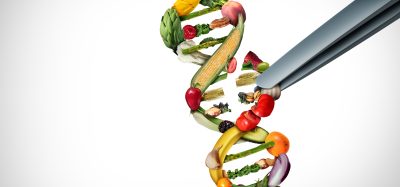FSAI survey finds horse DNA in some beef burger products
- Like
- Digg
- Del
- Tumblr
- VKontakte
- Buffer
- Love This
- Odnoklassniki
- Meneame
- Blogger
- Amazon
- Yahoo Mail
- Gmail
- AOL
- Newsvine
- HackerNews
- Evernote
- MySpace
- Mail.ru
- Viadeo
- Line
- Comments
- Yummly
- SMS
- Viber
- Telegram
- Subscribe
- Skype
- Facebook Messenger
- Kakao
- LiveJournal
- Yammer
- Edgar
- Fintel
- Mix
- Instapaper
- Copy Link
Posted: 15 January 2013 | Food Safety Authority of Ireland (FSAI) | 1 comment
FSAI published the findings of a targeted study examining the authenticity of a number of beef burger, beef meal and salami products…


The Food Safety Authority of Ireland (FSAI) today published the findings of a targeted study examining the authenticity of a number of beef burger, beef meal and salami products available from retail outlets in Ireland. The study which tested for the presence of horse and pig DNA, reveals the presence of horse DNA in some beef burger products. The FSAI states this raises concerns in relation to the traceability of meat ingredients and products entering the food chain.


FSAI published the findings of a targeted study examining the authenticity of a number of beef burger, beef meal and salami products…
A total of 27 beef burger products were analysed with 10 of the 27 products (37%) testing positive for horse DNA and 23 (85%) testing positive for pig DNA. In addition, 31 beef meal products (cottage pie, beef curry pie, lasagne, etc) were analysed of which 21 were positive for pig DNA and all were negative for horse DNA. All 19 salami products analysed tested negative for horse DNA. Traces of horse DNA were also detected in batches of raw ingredients, including some imported from The Netherlands and Spain.
The beef burger products which tested positive for horse DNA were produced by two processing plants (Liffey Meats and Silvercrest Foods) in Ireland and one plant (Dalepak Hambleton) in the UK. They were on sale in Tesco, Dunnes Stores, Lidl, Aldi and Iceland. In nine of the ten beef burger samples from these retailers, horse DNA was found at very low levels. However, in one sample from Tesco, the level of horse DNA indicated that horsemeat accounted for approximately 29% relative to the beef content. The FSAI is working with the Department of Agriculture, Food and the Marine, and the processing plants and retailers involved. The retailers have stated that they are removing all implicated batches from sale today. In addition, Silvercrest Foods has informed the FSAI that it is withdrawing all products from sale and replacing them with new products.
According to Prof. Alan Reilly, Chief Executive, FSAI, whilst these findings pose no risk to public health they do raise some concerns. He states: “The products we have identified as containing horse DNA and/or pig DNA do not pose any food safety risk and consumers should not be worried. Consumers who have purchased any of the implicated products can return them to their retailer.”
“Whilst, there is a plausible explanation for the presence of pig DNA in these products due to the fact that meat from different animals is processed in the same meat plants, there is no clear explanation at this time for the presence of horse DNA in products emanating from meat plants that do not use horsemeat in their production process. In Ireland, it is not in our culture to eat horsemeat and therefore, we do not expect to find it in a burger. Likewise, for some religious groups or people who abstain from eating pig meat, the presence of traces of pig DNA is unacceptable. We are working with the meat processing plants and the Department of Agriculture, Fisheries and the Marine to find out how horse DNA could have found its way into these products,” concludes Prof. Reilly.
The FSAI and its official agencies carry out a number of surveys and studies each year as part of its proactive monitoring activities. These product surveys provide a snapshot of the status of products on the market at specific time. The legal responsibility for placing safe food on the market lies with the food industry and the FSAI routinely monitors and samples for compliance.
The FSAI operates an Advice Line on 1890 33 66 77 from 9.00am-5.00pm.
Table of Results of Beef Burgers Study
Questions and Answers on Horse and Pork DNA found in Meat Products








Traceability is possibly one of the most ignored or abused area of food safety. In Europe this is obligatory according to EU Regulation 178 of 2002. It is a very tedious process and can be very time consuming in SMEs especially if there are no automated systems. These are highly prone to human error.
GS1, a non for profit organisation has the right tools and has developed a number of standards. The beauty of this tool is the fail-safe aspect of barcodes. Using the GS1 barcodes makes the system interoperable from one organisation to the next. After all this is the basic element of traceability – keeping track along the food chain
Although traceability is a requirement, most operators do not consider this as ‘food safety issue’. Little do they realise the price of losing track in case of a recall! Lately GS1 offices, which are present all over the world, have intensified their training of their staff to be able to carryout an assessment of the traceability process in the most effective and professional way using ISO19021 requirements. Implementing these tools will avoid such repetitions as seen in this case.